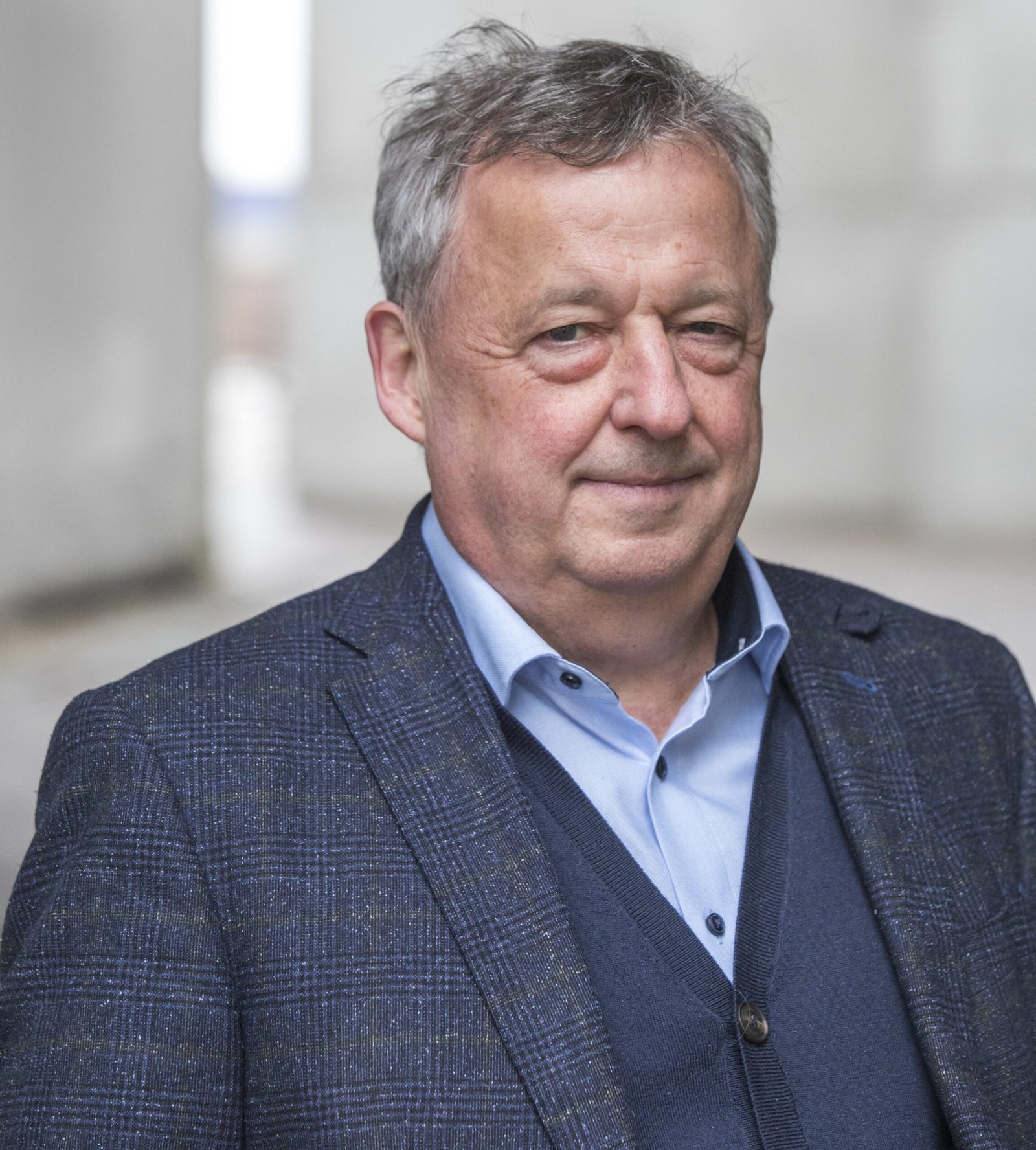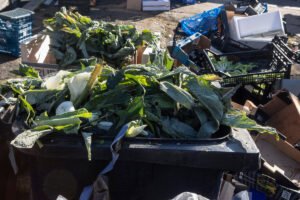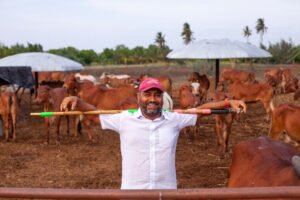Wednesday, 18 February 2026
Cultivating change: BENEO’s path to sustainable rice ingredients
Roland Vanhoegaerden, Operations Managing Director for Speciality Rice Ingredients at BENEO BENEO has launched a landmark initiative in Vietnam’s Mekong Delta to promote sustainable rice cultivation, partnering with non-profit organisation…

Roland Vanhoegaerden, Operations Managing Director for Speciality Rice Ingredients at BENEO
BENEO has launched a landmark initiative in Vietnam’s Mekong Delta to promote sustainable rice cultivation, partnering with non-profit organisation Rikolto and climate-tech company CarbonFarm. The three-year project aims to reduce greenhouse gas emissions, improve water efficiency, and strengthen the resilience of local rice farmers by aligning practices with the Sustainable Rice Platform (SRP) standard.
In this interview with NUFFOODS Spectrum, Roland Vanhoegaerden, Operations Managing Director for Speciality Rice Ingredients at BENEO, discusses the motivations behind the investment, the challenges and opportunities in Vietnam’s rice sector, and how technology, multi-stakeholder collaboration, and SRP-certified rice can help reshape the future of sustainable food systems.
What motivated BENEO to invest in sustainable rice production in Vietnam, and how does this align with the company’s broader sustainability goals?
At BENEO, we recognise that delivering nutritious, science-backed ingredients for the food and feed industry is only possible through the responsible use of Earth’s resources. That’s why a crucial element of our sustainability efforts is building long-term partnerships with farmers–providing services and consultancy, and promoting regenerative agricultural practices–intending to support resilient farming systems and supply chains.
Investing in sustainable rice production in Vietnam is therefore a natural fit with our overall sustainability strategy, our ‘Healthy Planet Plan’.
As one of the world’s top rice exporters, Vietnam holds strong potential to drive sustainable changes. We believe that working directly at the source is one of the most effective ways to foster meaningful change. Through this project, we aim to promote sustainable rice cultivation methods that help reduce greenhouse gas emissions and strengthen farming resilience. This aligns with our goal to responsibly source the raw materials we process into food and feed ingredients.
By working with farmers in the Mekong Delta, we are reinforcing our commitment to regenerative agriculture and to supporting local livelihoods.
Vietnam is a major player in global rice exports. What specific environmental and social challenges does this project aim to address in the Mekong Delta region?
The Mekong Delta is one of the most important rice-producing regions in the world, but it faces severe climate risks and socio-economic challenges due to intensive rice cultivation practices. This project aims to address critical issues such as inefficient water use, the over-application of fertilisers and pesticides, and the common practice of burning rice residues—all of which contribute to soil degradation, biodiversity loss, and greenhouse gas emissions. At the same time, the region is increasingly vulnerable to climate change, including rising salinity levels and unpredictable rainfall patterns, which put additional strain on smallholder farmers.
From a social perspective, there is a growing need to improve farmer incomes and resilience, especially as global market expectations around sustainability evolve. By helping farmers adopt climate-smart agricultural practices in line with the Sustainable Rice Platform (SRP) standard, this project contributes to both environmental stewardship and socio-economic well-being.
Could you elaborate on how BENEO, Rikolto, and CarbonFarm are dividing responsibilities in the project and how this multi-stakeholder collaboration enhances impact?
The collaboration between BENEO, Rikolto, and CarbonFarm leverages each partner’s unique strengths to drive systemic change in the rice value chain.
Rikolto, with its longstanding presence in Vietnam and partnership with local authorities, is experienced in working directly with farmer cooperatives, playing a central role in farmer engagement, training, and capacity building. The organisation ensures that local communities are equipped with the knowledge and tools to implement the SRP standard and adopt more sustainable farming practices.
CarbonFarm contributes its expertise in climate monitoring technologies to quantify emission reductions and to monitor water savings. This allows the collection of data and the assessment of environmental outcomes through satellite monitoring and digital platforms. Their tools enable transparency and data-driven decision-making, which is vital for validating climate impact.
BENEO’s role focuses on establishing responsible sourcing pathways and reliable supply chains for the SRP-certified rice produced, connecting sustainable farming practices to long-term demand in international food and feed markets. By granting the trained farmers guaranteed purchase quantities for their sustainably cultivated rice, we help secure market access and commercial viability for the certified rice, supporting the project’s long-term success.
This multi-stakeholder model ensures that interventions are technically sound, grounded in the realities of local farming, and aligned with global market demand to deliver sustainable impact.
The project leverages technologies like satellite monitoring and digital logbooks. How will these tools be used to track emissions, water usage, and overall sustainability progress?
Innovative technologies such as satellites and digital logbooks are central to the project, as they enable the monitoring of farming practices and the scientific measurement of key outcomes. CarbonFarm’s satellite monitoring system will be used to track key environmental indicators, including methane emissions from rice paddies and water usage. These tools provide a reliable, consistent, and objective source of data, eliminating the need for costly field inspections and delivering near real-time, verifiable insights on the environmental footprint of rice cultivation–essential for assessing the impact of climate-smart interventions.
By leveraging CarbonFarm’s technology, we ensure full transparency, allowing stakeholders to track progress and measure the project’s impact effectively. The integration of these tools supports traceability, accountability, and continuous improvement over the three-year implementation period. Moreover, the ability to quantify emission reductions and sustainability gains will be crucial for future scalability and unlocking potential climate financing mechanisms.
What role does BENEO see for SRP-certified rice ingredients in the global food and nutrition markets, and how will you support the commercial scaling of these sustainable products?
With 3 in 4 global consumers stating that how food is made and what is in it is very important to them,[i] and 1 in 2 placing high value on honesty and transparency about ingredients/sourcing[ii], it’s clear that manufacturers need high-quality ingredients that cater to both health- and environmentally-conscious consumers.
The demand for sustainable, traceable ingredients is growing across food and nutrition markets, and SRP-certified rice ingredients can play a vital role in meeting these expectations. From a formulation standpoint, rice ingredients like starches, proteins and flours offer functional benefits such as texture optimisation, enhanced nutritional profiles and clean-label appeal, while SRP certification adds an environmental and social value layer that resonates with consumers and manufacturers alike.
We see SRP-certified rice as an opportunity to support our customers in making more sustainable product choices, without compromising on quality or performance. Through this project, we are establishing a dedicated supply stream of certified rice that meets stringent sustainability and technical standards, positioning it as suitable for use in a wide range of food and feed applications.
Beyond the three-year timeline, what are your long-term ambitions for this initiative, both in Vietnam and potentially in other rice-growing regions?
The current focus is on successfully training farmers in Vietnam’s Mekong Delta and establishing a reliable supply of SRP-certified rice, with a target of processing at least 10,000 tonnes at BENEO’s production site in Wijgmaal, Belgium.
Longer-term, the goal is to empower local cooperatives to continue supporting rice farmers independently beyond the three-year project. This approach is designed to help scale sustainable rice cultivation in the region, creating a foundation that could support further responsible sourcing efforts in future.
[i] BENEO Global Plant-Based & Meat Hybrids Survey 2023 – Dynata conducted an online quantitative survey in January 2023 in Germany, UK, France, Spain, Poland, USA, Brazil and Thailand (Total sample = 6167).
[ii] Innova Global Trends Survey 2025
Shraddha Warde
shraddha.warde@mmactiv.com
Technology
Carlsberg Launches AI-Crafted Lunar New Year Packaging
Feb 17, 2026 | Beverages
FAO Experts Assess Risk of Antimicrobial Resistance Spreading via Food Loss and Waste
Feb 17, 2026 | Sustainability
Food Testing
Redefining Trust in Organic Foods through Independent Testing
Feb 13, 2026 | Food Safety and Testing
AFNOR International Eyes Global Food Safety Growth with HACCP Group Takeover
Feb 04, 2026 | Australia
More Popular
Hormel Foods Announces Agreement to Sell Whole-Bird Turkey Business to Life-Science Innovations
Feb 18, 2026 | Company News
Kodiak Expands Frozen Lineup with No Sugar Added Homestyle Power Waffles
Feb 18, 2026 | Company News






